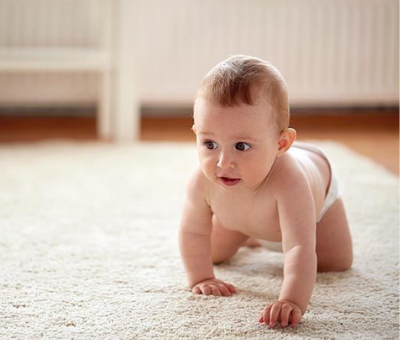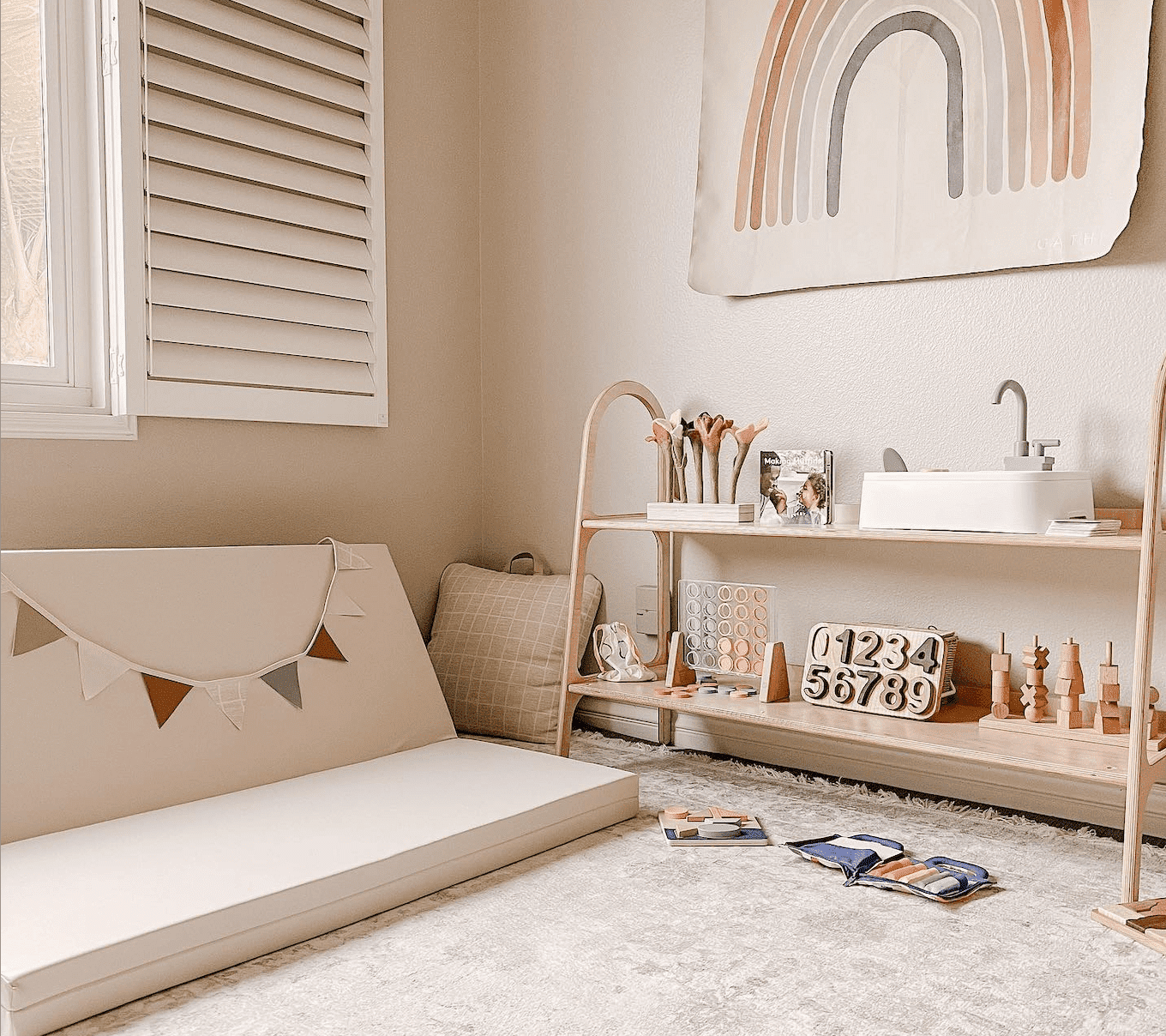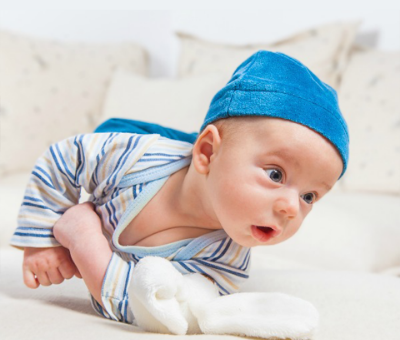
The Baby Crawl Guide: Milestones, Motivation & When to Worry
Header image from 📷 aau.edu
“My 8-month-old isn't crawling yet.”
If that line feels familiar, you're not alone, and you're not behind.
As a parent, tracking your baby's development can feel like a full-time job. One minute, you're celebrating their first roll-over. Next, you're scanning Google for signs of crawling delays. It's overwhelming. But here's the calm truth: not crawling yet doesn't mean something's wrong.
Some babies crawl early. Others skip it entirely and go straight to standing. Milestones matter, but so does knowing that development isn't one-size-fits-all. If you've found yourself asking, “Why isn't my baby crawling?” this guide is for you.
When Do Babies Start Crawling?
Most babies begin crawling between 6 to 10 months. But that window isn't rigid. Crawling isn't a medical milestone, it's a developmental phase that often starts after babies master rolling over and sitting independently.
If your baby is pushing up on their hands, rocking back and forth, or doing the adorable “commando crawl,” those are all strong signs of progress.
Remember that some babies skip crawling altogether and go straight to cruising or walking. That's okay too. Every baby develops in their own time, and if you're looking for more insights, tips, and inspiration along the way, check out @our_wunderkids on Instagram for calm, confidence-building content designed to support you and your little one.
The Stages of Crawling Development
Crawling doesn't just “happen.” It's a skill built layer by layer, through muscle strength, balance, coordination, and confidence.
Here's a look at typical stages of crawling development:
-
Tummy Time Champion (0-4 months): Builds neck and core strength.
-
Rolling and Scooting (4-6 months): Mobility begins.
-
Rocking on Hands and Knees (6-9 months): They're testing stability.
-
Commando Crawling (6-9 months): Using arms to drag the body forward.
-
Classic Crawling (7-10 months): Alternating arms and legs in rhythm.
These timelines vary, especially for babies born prematurely. If you're seeing steady progress in motor skills, you're on track.
Why Isn't My Baby Crawling Yet?
There are many reasons, most of them non-medical, why your baby might not be crawling:
1. They're Happy Where They Are
Some babies are simply content. If everything they need is within arm's reach, or if they enjoy watching the world from your arms, they might not feel the urge to move just yet.
Create gentle challenges: place toys just out of reach or sit a few feet away and encourage them to come to you.
2. Not Enough Tummy Time
Tummy time is the foundation of motor development. It strengthens the neck, shoulders, and core, all essential for crawling.
Aim for short, frequent tummy time sessions from the newborn stage onward. Add mirrors, soft books, or sensory toys to make it fun. Need inspiration? Check out our tummy time setup blog for ideas that grow with your baby.
3. They're Missing Motivation
Sometimes, we hold our babies a little too much (and who can blame us?). But constant holding can limit their time to independently explore movement.
Try giving your baby a designated safe play zone for daily floor time. A non-toxic play mat like the Wunderkids play mat makes a big difference, it's soft, supportive, and safe for gross motor practice. More on that below.
4. Extra Weight Makes Crawling Harder
Babies who are above the average weight for their age may need more support during crawling practice. Extra weight can make lifting and coordinating limbs harder.
That's not a flaw, it just means they'll need more encouragement and shorter, consistent sessions to build stamina. Celebrate every inch they move!
5. The Environment Isn't Helping
Hardwood floors? Too slippery. Carpet? Too rough. Beds? Way too soft. A baby's crawling success is directly tied to their surface.
That's why we recommend the Wunderkids Playmat with EZ Cover, the only play mat cover made from FDA-compliant (food contact grade) polyurethane leather. It features 9 layers of high-density, egg-box-shaped foam designed to reduce joint pressure while supporting crawling, sitting, and standing. It's ultra-soft, hypoallergenic, and easy to wipe clean after messy play sessions.
This is more than a mat, it's your baby's development zone.
Benefits of Crawling: Why It Still Matters
Even though some babies skip crawling, there are many developmental benefits worth encouraging:
-
Builds bilateral coordination between limbs
-
Strengthens upper body and core
-
Enhances visual tracking and depth perception
-
Develops spatial awareness and problem-solving
-
Encourages independence and confidence
Crawling connects brain hemispheres and lays the groundwork for future fine motor skills like writing and tying shoelaces.
So yes, mobility is important. Crawling is powerful.
Different Crawling Styles (All Are Valid!)
You might expect classic “hands-and-knees” crawling, but babies are creative! Here are a few crawling variations:
-
Commando Crawl: Dragging belly across the floor using arms
-
Bear Crawl: Hips up, knees off the floor (adorable and effective)
-
Crab Crawl: Moving sideways, like a little crustacean
-
Rolling Crawl: Rolling to the desired spot instead of crawling
-
Bum Scoot: Sitting upright and scooting using legs
Each style counts as movement, and some babies shift styles before finding their groove.
Exercises to Help Baby Crawl (Simple, Safe, Smart)
Looking for gentle crawling practice tips? Try these:
-
Toy Tease: Place favorite toys, like our soft play cubes, slightly out of reach on a play mat to encourage reaching and movement.
-
Tunnel Time: Use a soft tunnel or blanket tent to make crawling feel like a game.
-
Parent Crawl-Along: Get down on all fours and model crawling. Babies love to imitate!
-
Leg Support: Gently support your baby's hips or legs when they're on all fours to help them balance.
-
Keep sessions short and positive. Praise effort over outcome.
Safety and Childproofing for Crawlers
Once your baby starts crawling, the game changes. Here's how to stay ahead:
-
Cover all electrical outlets
-
Install safety gates at stairs
-
Remove choking hazards (small toys, coins)
-
Anchor furniture and secure cords
-
Use non-slip mats to avoid slips on hard floors
This is also the time to invest in a playpen or safety zone for supervised exploration.
When to Be Concerned About Crawling
If your baby isn't attempting mobility (rolling, scooting, or crawling) by 12 months, or if they seem to have very low muscle tone, you can consider consulting your pediatrician.
Keep in mind, babies born prematurely will often hit physical milestones later. Adjust expectations to their corrected age and monitor for progress, not perfection.
In fact, in 2022, the CDC officially removed crawling from its developmental milestone checklist, acknowledging that crawling styles vary widely and skipping it altogether is not a cause for concern. This update, explained in a peer-reviewed study published in Pediatric Physical Therapy, emphasized that while crawling supports coordination and strength, it isn't required for healthy development. So if your baby is mobile in other ways, or focusing on different skills, you're not behind.
Keep Calm and Crawl On
Watching other babies reach milestones sooner can stir up unnecessary worry. But there's no rush. Development isn't a race, it's a rhythm. And your baby is dancing to their own tune.
With the right support, a little strategy, and lots of love, they'll move when they're ready.
Want to create a safe space for crawling practice? Explore our Wunderkids Playmat, engineered for soft landings, steady hands, and every little milestone along the way.



